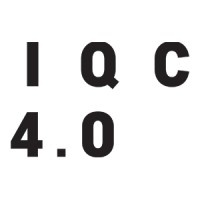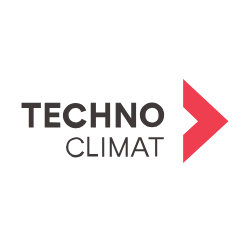
Opening Soon
IQC 4.0 — Stream 2
Last Update: October 27, 2025
QC, Canada
Digital transformation support for Quebec's construction industry
Grant and Funding
Expert Advice
At a glance
Funding available
Financing goals
Integrate new technologies
Optimize production processes
Eligible Funding
- Up to 50% of project cost
Timeline
- Unspecified
Eligible candidates
Eligible Industries
- Construction
Location
- Quebec
Legal structures
- Financial cooperative
- Non-profit
- Public or Parapublic institution
- For-profit business
- Sole proprietorship
- Social economy enterprise
- Non-financial cooperative
Annual revenue
- All revenue ranges
Organisation size
- All organization sizes
Audience
- All groups
Non-profit candidates
Sector of operation
- Economic, Social and Community Development
- Employment and Training
- Business Associations
- Professional Associations
Target groups
- Business owners / entrepreneurs
Revenue structures
- All structures
Scope
- Provincial
Overview
The Initiative Québécoise pour la Construction 4.0 (IQC 4.0) provides up to 50% reimbursement for costs associated with digital transformation projects within Quebec's construction and built environment sectors. This funding supports activities such as technology integration, employee training, and process optimization to enhance digital maturity and productivity.
Activities funded
- Development and implementation of customized digital transformation plans in the construction sector.
- Expert-led diagnostics to assess digital maturity and identify sector-specific needs.
- Training and support activities to facilitate the adoption of digital technologies and processes.
- Structured digital and automation improvement projects involving client organizations and their suppliers.
- Pilot projects for technology integration and collaborative digital practices within the construction ecosystem.
Examples of admissible projects:
$ 50,000
A company implements a new data management platform to improve collaboration between its teams and partners.
$ 30,000
An organization integrates BIM software to optimize the modelling of its construction projects.
$ 50,000
A business implements an integrated management solution to centralize its real-time data.
$ 45,000
A company conducts a pilot project to evaluate the effectiveness of connected sensors on its construction sites.
Eligibility
- The company must have an office located in Quebec.
- The company must operate in the construction sector or the built environment.
- The company must have completed the IQC 4.0 digital diagnostic process (for certain streams).
- The company or organization must demonstrate commitment from its leadership to actively engage in the digital transformation process.
- The applicant must not have previously participated in a "locomotive numérique" (for that particular stream).
Who is eligible?
- Companies operating in the construction industry
- Companies involved in the built environment sector
- Project owners (donneurs d’ouvrage) in construction
- Suppliers in the Quebec construction sector
Who is not eligible
- Companies that do not have an office located in Quebec.
- Businesses that do not operate in the construction sector or the built environment.
- Organizations that have not completed the IQC 4.0 diagnostic (for Streams requiring follow-up phases).
- Entities that have already participated in a digital locomotive (for the relevant stream).
Eligible expenses
- Purchase and upgrading of software related to digital transformation.
- Acquisition of computer equipment linked to the digital implementation project.
- Training expenses for employees regarding new digital tools.
- Fees for external support and guidance in digital transformation (accompaniment).
Eligible geographic areas
- Quebec
Selection criteria
- Demonstrated commitment and engagement from organizational leadership throughout the transition process.
- Representation across various disciplines and regional geographic distribution.
How to apply
1
Submit application form
- Review eligibility criteria including Quebec business location and activity in construction sector
- Submit your application via the specified registration process
2
Application review and selection
- Wait for the review of your application
- Receive confirmation of selection or refusal
3
Provide company information
- Provide company information during first contact
- Fill out company profile as requested
4
Participate in diagnostic sessions
- Participate in digital diagnostic sessions with assigned experts
- Assess current situation and define desired digitalization state
5
Receive and review action plan
- Receive a tailored action plan for your digital transformation
- Review deployment plan presented by experts
Additional information
- Your participation in the program is free of charge.
- The program requires a significant time commitment from participants, estimated between 20 to 40 hours over three months.
- Each company will receive personalized support from experts throughout all stages of the process.
- The initiative is managed by the Groupe BIM du Québec and the Institut de gouvernance numérique, in partnership with professional associations in the construction sector.
Apply to this program
Frequently Asked Questions about the IQC 4.0 — Stream 2 Program
Here are answers to the most common questions about the IQC 4.0 — Stream 2. This section explains what the program is, how much funding is available, eligibility requirements, application deadlines, and other important details to help you determine if this grant is right for your business.
What is the IQC 4.0 — Stream 2?
How much funding can be received?
What expenses are eligible under IQC 4.0 — Stream 2?
What is the deadline to apply?
Is the IQC 4.0 — Stream 2 a grant, loan, or tax credit?
Who are the financial supporters of the IQC 4.0 — Stream 2?
Who is eligible for the IQC 4.0 — Stream 2 program?
Who can I contact for more information about the IQC 4.0 — Stream 2?
Where is the IQC 4.0 — Stream 2 available?
Apply to this program
More programs like this

Expert AdviceClosed
Quebec Initiative for Construction 4.0 — Stream 1
Groupe BIM du Québec (GBQ)Digital transformation plan for Quebec construction industry

Grant and FundingOpen
Innovative Projects Program
Hydro-QuébecSupports innovative, energy-efficient projects for multi-building developments

Grant and FundingOpen
Technoclimat
Environnement Québec (MELCC)Financial assistance for the demonstration of new technologies in Quebec

Tax CreditsWage Subsidies And InternsOpen
Financial assistance for the hiring of a person to integrate a job on a long-term basis
Gouvernement du QuébecSupports employers hiring candidates facing employment barriers

Grant and FundingOpen
Energir — Energy efficiency program - Efficient construction
EnergirSupports energy-efficient construction and renovation for businesses in Quebec

Grant and FundingExpert AdviceOpen
FABconstruction – Stream 2 : Support for productivity enhancement
Digital Governance Institute (IGN)Supports productivity and sustainability in modular construction companies

Grant and FundingExpert AdviceOpen
FABconstruction – Stream 1 : Business process analysis and action plan
Digital Governance Institute (IGN)Expert guidance for optimizing modular and off-site construction processes

Partnering and CollaborationGrant and FundingExpert AdviceSuspended
Financial support to assess your energy use Hydro Quebec
Hydro-QuébecUp to $50,000 for energy performance analysis and optimization

Grant and FundingOpen
Enbridge Gas Quebec — Custom-made project
Enbridge Gas QuebecSupports energy-saving projects using natural gas in buildings

Grant and FundingOpen
Roulez Vert — Rebate for charging station at work
Gouvernement du QuébecGet financial aid to install electric charging stations at your Quebec business
Sign up to our platform to access the IQC 4.0 — Stream 2 information sheet for free
Get access to 4,000+ programs, practical guides, personalized alerts, and an AI assistant to support your grant applications.